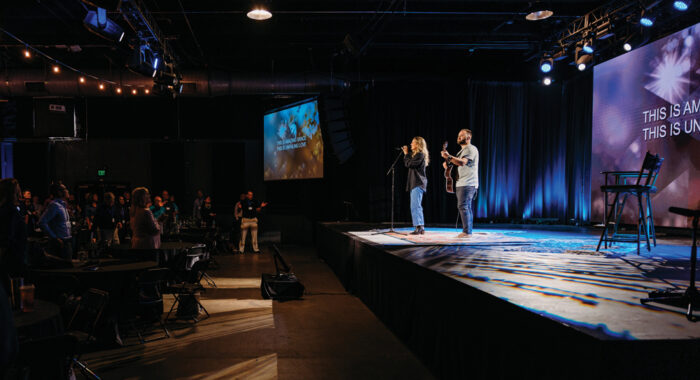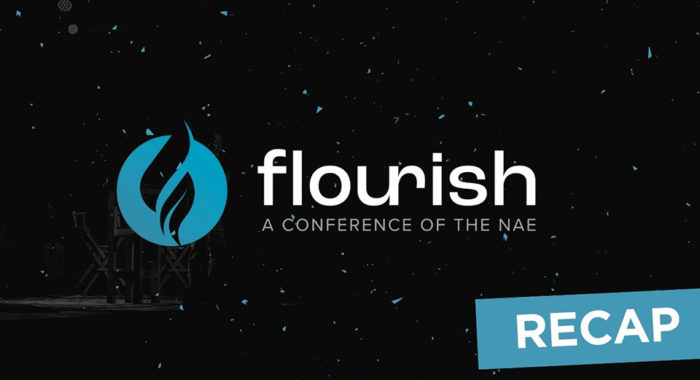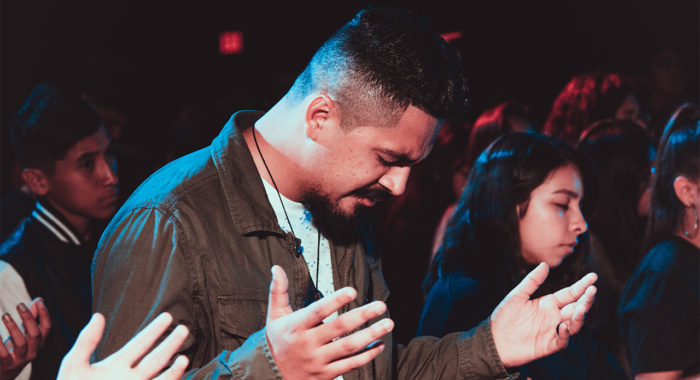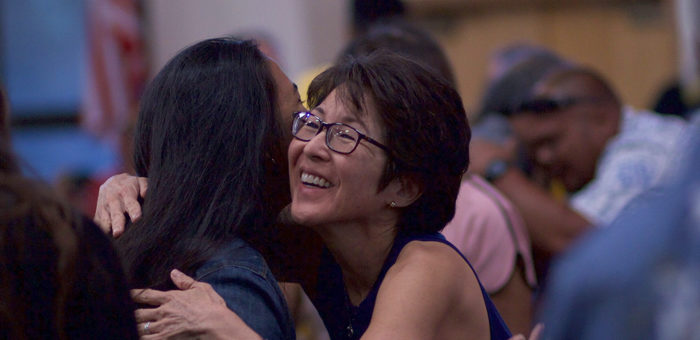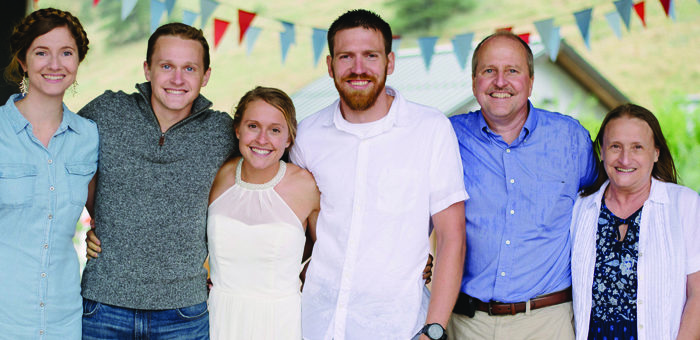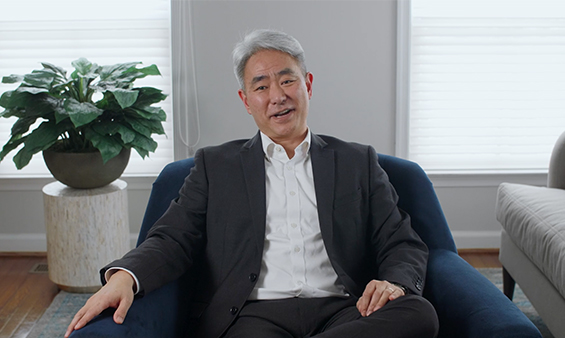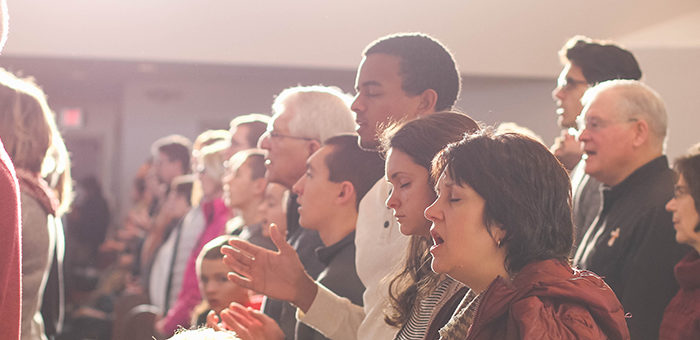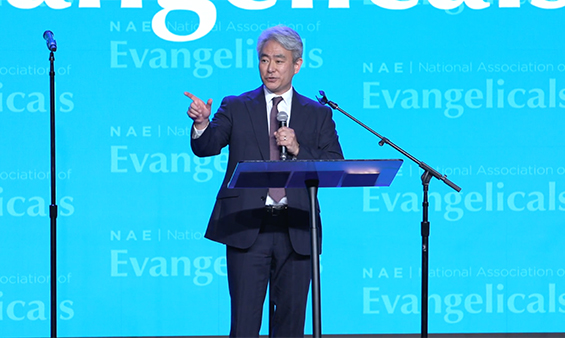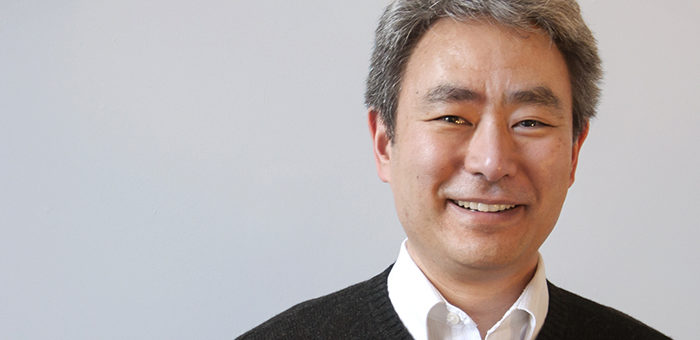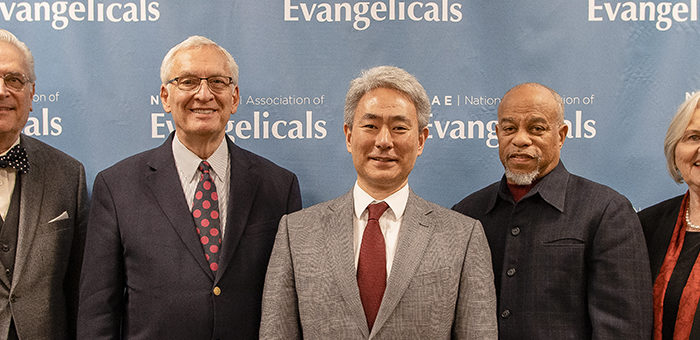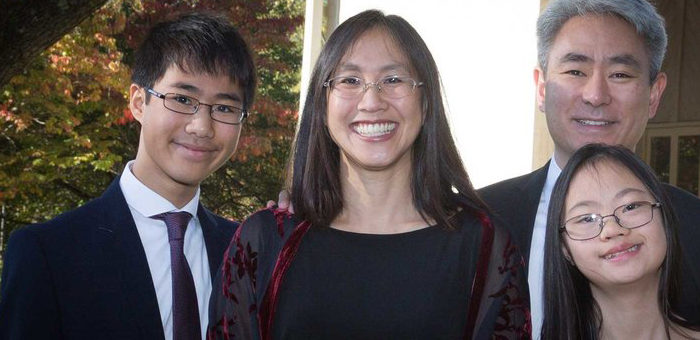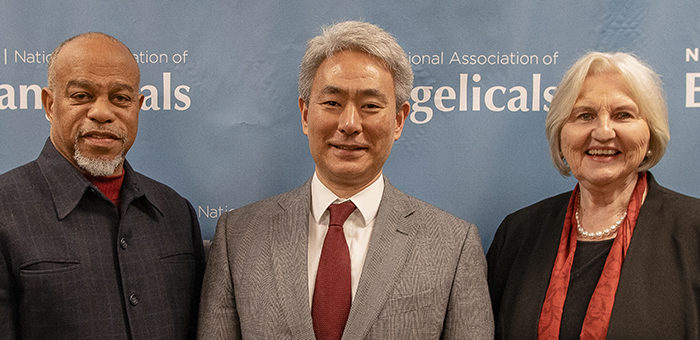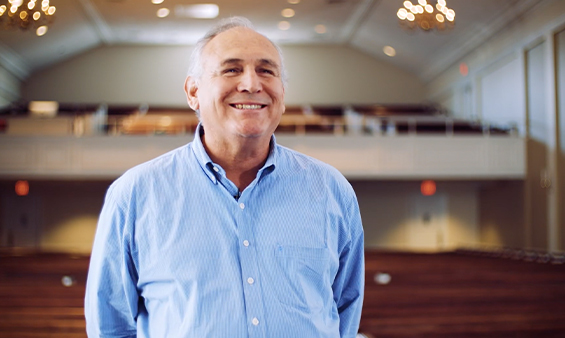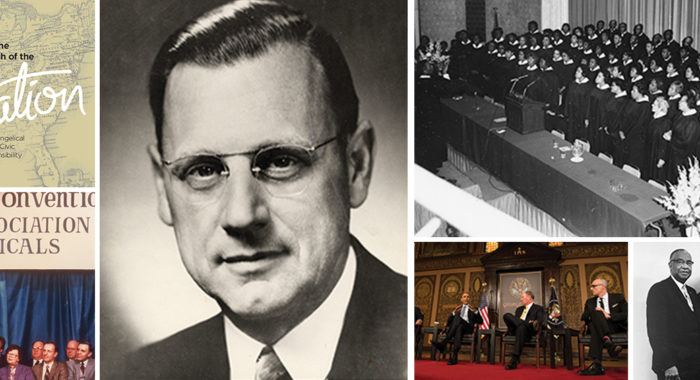Heather Gonzales, NAE chief operating officer and vice president, has served the NAE since 2005, most recently as association director. Previously, she worked for IRI, an international democracy promotion organization; Africa Inland Mission in Namibia; and several congressional offices. Her NAE connection is nearly lifelong, growing up with a dad who was a denominational executive with the Church of the United Brethren in Christ and a member of the NAE Board of Directors.
What is the National Association of Evangelicals good at doing right now?
The NAE has been serving the evangelical community for 75 years, and today all of that history and experience has built an association that is as large, strong and significant as it has ever been. In the midst of our diverse and dynamic evangelical community, the NAE stands as a thoughtful unifying presence. We are providing networking and enrichment opportunities for evangelical leaders, endorsing and training military and institutional chaplains, providing resources to inspire and equip ministry leaders, winsomely advocating for evangelical concerns in public policy, and empowering pastors to minister out of a place of financial health (see NAEfinancialhealth.org).
Due to the breadth and diversity of our membership, we are regularly consulted by the religious and secular press, government officials and leaders with influence. Nearly every day requests for connection, advice and direction come in from evangelicals and those of other (or no) faith persuasions. Our “What is an Evangelical?” page brings people to our website to learn more about our community. The NAE Statement of Faith (unchanged since 1943) is the gold standard of evangelicalism and is widely used by evangelical organizations. In short, we are working hard to serve as connective tissue for evangelicalism while providing a thoughtful voice that uses our influence for good.
You have worked for the NAE for nearly 14 years, what are the most significant changes you have seen?
The NAE has moved through different seasons in over seven decades of ministry. When I came to the NAE, it was a season of transition, and we were working hard to shore up the organization with meaningful member service, high quality staff and board, and a firm financial footing. As those pieces have come together in recent years, we’ve been able to turn more of our attention to the fun stuff — using our influence and connections to provide high quality resources, equip and empower chaplains, network evangelical leaders, invest in pastors, provide a robust voice on public policy, and work to better reflect the diversity of the evangelical community in our leadership and membership.
How would you describe the changes in the evangelical movement in the last 10 years?
In the 75 years of the NAE’s ministry, evangelicalism has experienced enormous growth and expansion. The evangelical community today is large, representing as much as 30 percent of the people in the United States. Naturally, in a group that large, there are subgroups identified by where we live, how we vote, the level of our education or even our local cultural expressions. Each has distinctive beliefs and practices that may be unfamiliar or uncomfortable to one another. In the midst of all of this, we are committed to providing a measured, thoughtful voice for the winsome gospel message.
What do you say to people who think that the evangelical movement is mostly about politics?
Evangelicalism is a vibrant and diverse group of “good news” people worshiping and serving in churches, nonprofits, missions, hospitals, denominations, homes and schools across the United States and around the world. Our common bond is personal faith in Jesus Christ as Savior and Lord, not politics. Evangelicals do and should engage in the public square, in a variety of ways across the political spectrum. The NAE’s “For the Health of the Nation: An Evangelical Call to Civic Responsibility” calls them to a gracious and thoughtful engagement. Yet, that engagement is just one piece of our commitment as evangelicals to take the Bible seriously and serve as the agents of Jesus in a broken world.
What excites you about the future of the NAE?
There are lots of opportunities for the NAE to expand our connection and influence. We recently received a capacity building grant that will empower us to better reflect the ethnic, gender and generational diversity of evangelicals, establish a strong donor base, better serve our members, and tell a story that inspires evangelicals and informs the public understanding of our community.
How would you define success for the NAE?
The mission of the NAE is to honor God by connecting and representing evangelical Christians. And overlaying that mission is the early commitment of our founders to bring unity in the midst of diversity and provide a positive testimony to the gospel. I believe that the NAE is successful when we harness the rich diversity of our community and lead with wisdom, grace and conviction to provide a positive vision for evangelicals and empower them to be the hands and feet of Christ in their communities and spheres of influence. It’s a big task.
What makes that success possible?
I often find myself marveling at the remarkable diversity represented within the NAE. We represent millions of evangelicals in our churches, nonprofits, schools and denominations — all diverse in theology and practice but unified in common cause. The success of the NAE is driven by that body of believers — our members and partners — who are committed to honor God with a constructive voice of unity and winsome influence.
This article originally appeared in Evangelicals magazine.
Heather Gonzales, NAE vice president and chief operating officer, has served the NAE since 2005, most recently as association director. Previously, she worked for IRI, an international democracy promotion organization; Africa Inland Mission in Namibia; and several congressional offices. Gonzales holds degrees in history and business management from Huntington College and a Masters of Liberal Studies from Georgetown University.




 View All Articles
View All Articles 





